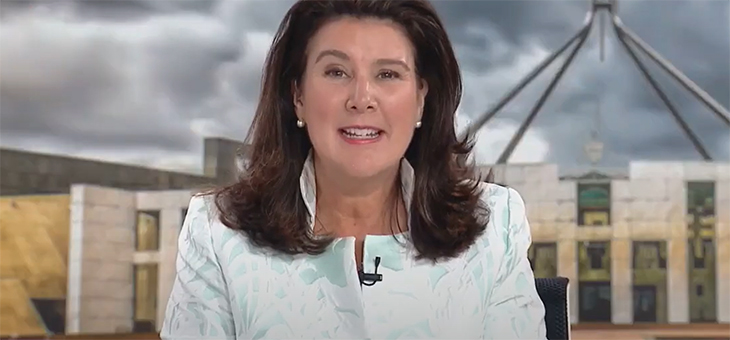Federal government superannuation minister Jane Hume has warned superannuation funds against charging new fees in an attempt to ‘save their own skin’.
Speaking at the AFR Super and Wealth Summit in Sydney this week, Senator Hume said the government was closely watching funds that were attempting to charge new fees or add levies in an attempt to raise money to protect their own interests.
Her remarks follow moves by Cbus and QSuper to restructure the way that they pay for penalties and fines for wrongdoing.
Read: Super needs to focus on better post-retirement products
Cbus has made a request to the Supreme Court for permission to change its rules to create a pool of capital to pay any future fines, despite not currently facing any fines or penalties.
Last month, the Supreme Court of Queensland declared QSuper could impose a new fee on members in order to pay any regulatory penalties or fines, according to Investor Daily.
At the time, QSuper confirmed that the court had declared the trustee was “justified” in amending the trust deed to raise a fee as a prudent response to recent legislative changes.
“This will support the ongoing financial resilience of the trustee and its ongoing ability to perform its duty to manage the fund in members’ best financial interests,” QSuper said.
Super funds have been forced to look into alternative options after government reforms closed a loophole that allowed funds to use member savings to pay financial penalties for civil or criminal breaches of the Corporations Act.
Read: Super funds on track for double digit returns for 2021
Senator Hume said the government would be watching the sector closely and was prepared to take action if required.
“Recently, a number of super funds applied to the courts seeking permission to charge members a new fee to build a trustee financial contingency reserve,” Senator Hume said. “Let’s not kid ourselves as to what this really is; taking member’s money out of their retirement savings to set up a pool of funds ‑ owned by the trustee ‑ to ensure they can pay for penalties due to their own misconduct.
“The application of a whole new category of fees charged to members, I feel, is a retrograde step,” she said.
Read: The super changes that could cost you $300k
“I will be watching these developments very closely. If it appears that trustees are confusing their own interests ‑ saving their own skins ‑ with the best financial interests of members whose money is unlikely to be imperilled by a change of trustee, I would expect regulators to take action. And the parliament might too.
“And if trustees think otherwise, perhaps it’s a question that should be put to members at their annual members meeting? I’m not sure how many members would vote to give away some of their hard-earned retirement savings to bail out a trustee for wrongdoing.
“Particularly when trustees and those organisations that stand behind them have their own resources, which they could alternatively draw on rather than milking their members.”
A Cbus spokesperson told Investor Daily it would be approaching the matter of amending its rules to create a pool of funds for emergency use “gradually”.
“It will build this capital through a fee charged against Cbus reserves, which cannot be more than 0.10 per cent of Cbus net assets over a biennial period but which is expected to be significantly less than this,” the spokesperson said.
“The profit-to-member ethos of Cbus has not and will not change.”
Do you think super funds should be able to charge a levy to protect themselves? Why not share your thoughts in the comments section below?
If you enjoy our content, don’t keep it to yourself. Share our free eNews with your friends and encourage them to sign up.

